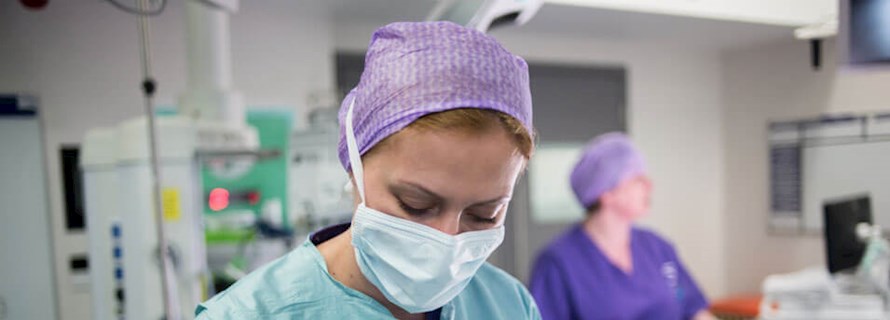Minimally invasive fracture fixation
Keyhole surgery to repair spinal fractures
HCA UK has the expert knowledge and facilities to deliver minimally invasive fracture fixation
About spinal fracture fixation
Minimally invasive spinal fracture fixation requires the use of special instrumentation whereby small incisions are made to put screws and rods in place to hold the fracture stable while it heals.
The healing for each patient will vary based on their individual condition.
Need to know
-
What happens during surgery? icon plus
Relatively small incisions will be made in the back over the site of the fracture under X-ray or CT scan guidance. Computer navigation (image guidance) is also used to guide the placement of instruments.
Depending on your condition, it may be necessary to use rods and screws to stabilise the spine or to immobilise the spine so that the bones fuse (knit together).
Minimally invasive fracture repairs can be faster, safer and require less recovery time. The potential benefits are:- less blood loss
- reduced risk of muscle damage as less or no cutting of the muscle is required
- reduced risk of infection
- less pain following the procedure
- faster recovery from surgery
- less rehabilitation required
-
How to prepare icon plus
Your consultant will explain your minimally invasive fracture fixation procedure to you and answer any questions you might have.
Because you'll be having general anaesthetic, they'll let you know how long you should avoid eating and drinking before surgery. You may also be asked to attend a nurse led pre assessment clinic.
Like all procedures, there may be some risks and side effects involved. Your consultant will explain these to you.
-
After surgery icon plus
You'll be offered pain relief while you're in hospital. Be prepared to use pain relief for a few weeks afterwards as your body recovers. Your consultant will let you know when you can get back to your usual routine, but it usually takes up to six weeks. Make sure you get plenty of rest and avoid strenuous activity.
You will also need to avoid driving for a few weeks – ask your consultant and your insurance company what they advise. It is important to try and regain your mobility when you feel well enough. You should try and take short walks in the first few days after surgery and build up to longer distances.
Our spinal consultants




Our locations
From complex spinal surgery to tests and joint injections, we provide exceptional spinal care across our network of hospitals, outpatient centres and specialist clinics.
Request a spinal appointment
We're happy to help you make an appointment with one of our experienced spinal consultants. We can also make imaging and outpatient physiotherapy appointments for you.
Call us today
020 7079 4344